
Shattering stereotypes: Indonesia’s all-women metal band Voice of Baceprot rocks Glastonbury
- The trio had to battle prejudices and family opposition to become the first Indonesian act to perform at the iconic UK festival
Sporting their signature Vans trainers and hijabs, Voice of Baceprot’s three members rocked the famed festival, which draws around 200,000 fans annually, with their electrifying metal anthems.
Indonesia’s Minister of Tourism and Creative Economy Sandiaga Uno congratulated the trio, calling their performance a “proud achievement for Indonesia”.
“They are not only the first band from Indonesia, but also the first Indonesian band of young women wearing headscarves playing heavy metal,” he said earlier this week.
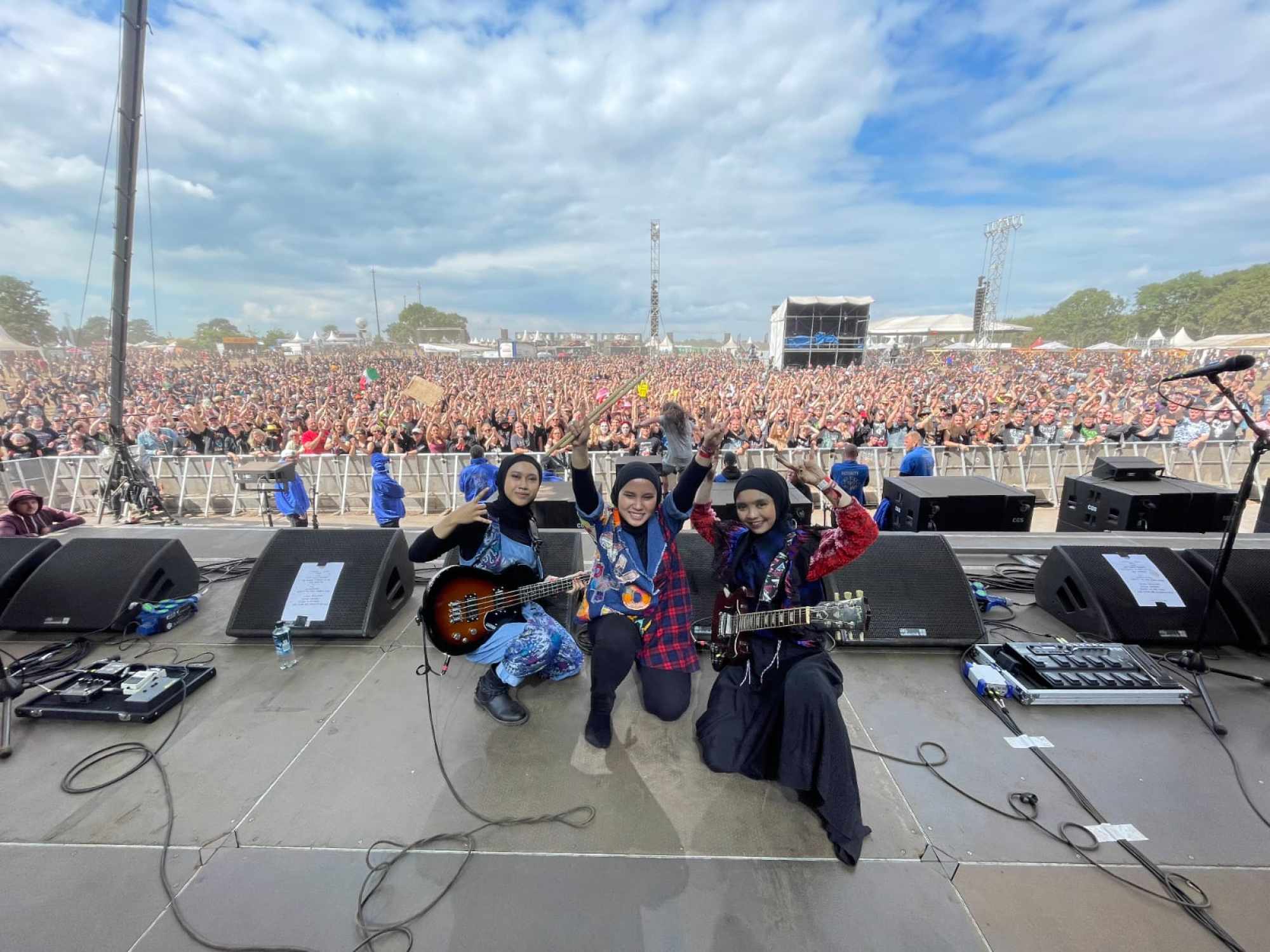
Yet the journey to performing at one of the world’s largest music events has not been a smooth ride for the band members, who grew up in a conservative farming town in Garut, West Java.
For years, the trio had to battle deep-rooted stereotypes and prejudices to carve out a space for themselves in Indonesia’s male-dominated metal scene.
“At first, our community did not really support what we were doing,” said lead singer Firda “Marsya” Kurnia, 24.
“People from our village thought heavy metal was the music of the devil. It has taken them some time to understand us and our music, and that playing metal does not make us inherently bad people. Now, at least, people don’t pass their judgment to our face.”
The band was formed in 2014 and the “Baceprot” in its name means “noisy” in the regional Sundanese language spoken in West Java.
In an interview with This Week in Asia, Marsya recounted meeting her bandmates – 24-year-old drummer Euis Siti Aisyah, and 23-year-old bassist Widi Rahmawati – in school when they were all still aged 14.
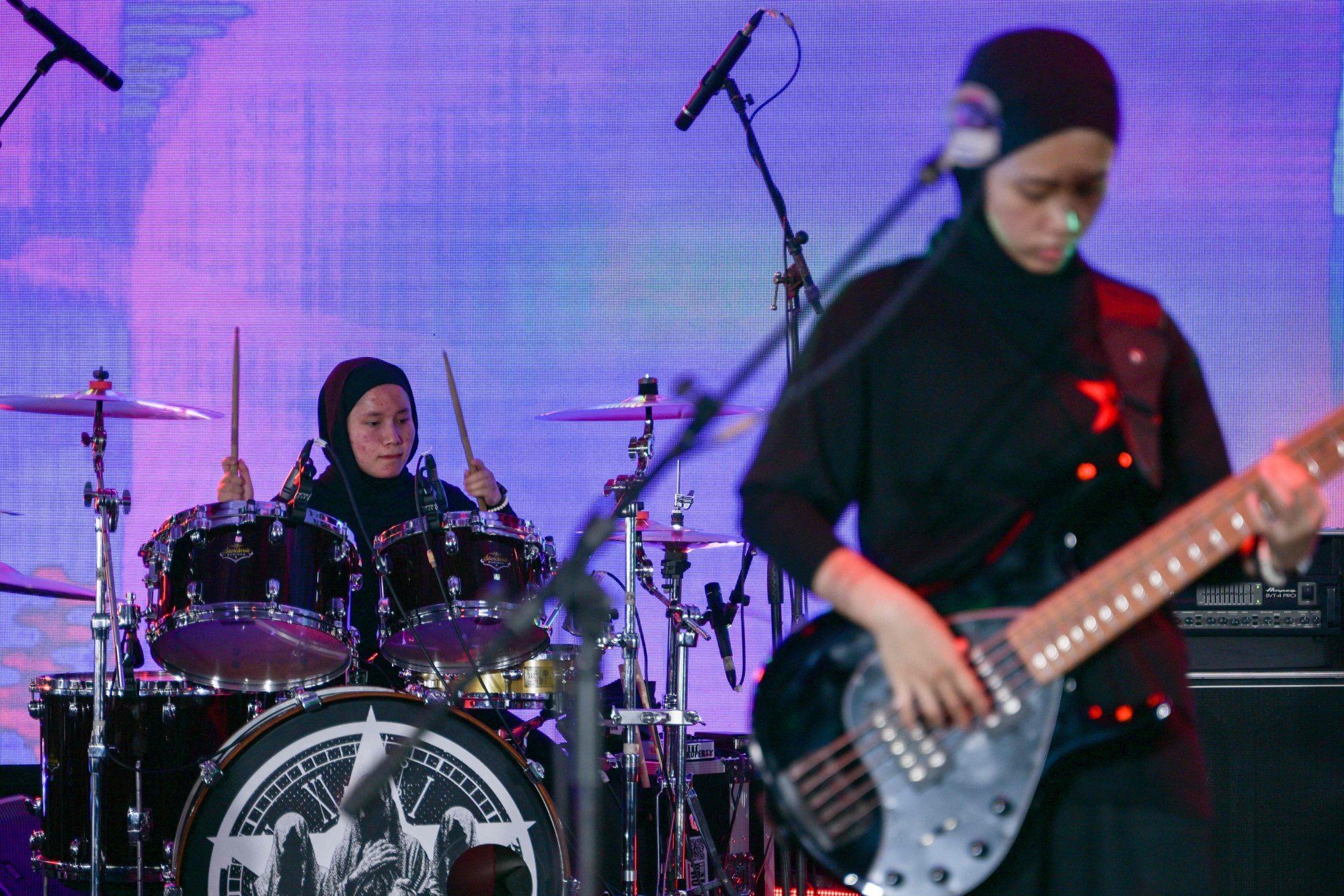
Marsya said they found their true calling when a teacher suggested they channel their energies into an extracurricular activity such as music.
Heeding the advice, the girls joined an after-school programme. They went through their music teacher’s laptop one day and discovered the bands that would become their musical heroes and influences – System of a Down, Rage Against the Machine, and the Red Hot Chili Peppers.
But unfortunately, the trio’s new-found passion hit a sour note with their parents.
“Our parents are all from very simple ordinary backgrounds … they work as farmers,” Marsya said. “None of us have any musicians in our bloodline.”
Siti said her parents were initially opposed to her interest in music. Attending after-school classes to play in the band meant she would return home late, which was frowned upon by those in her conservative village.
“I think my parents felt influenced by our neighbours … I would return home around 5pm, so I could attend music lessons, and it was considered wrong for girls in the village to come home that late, close to the evening,” Siti said.
As for Widi, her parents were happy that music brought her out of her shell, but grew concerned when it seemed like “music was the only thing I wanted to do”, she said.
The trio persevered despite the opposition, and Marsya said their parents relented after realising they “could not keep us away from the music”.
The group began sharing their work on Facebook and YouTube, winning over fans with their raucous Rage Against the Machine covers, as well as their original material.
Then came wider international attention, including plaudits from some superstars. Red Hot Chilli Peppers bassist Flea once tweeted that he was “so down with Voice of Baceprot”.
“I think when we started getting popular, there were opportunities to go on TV and perform at shows … that is when our parents began to support us more,” Siti said.
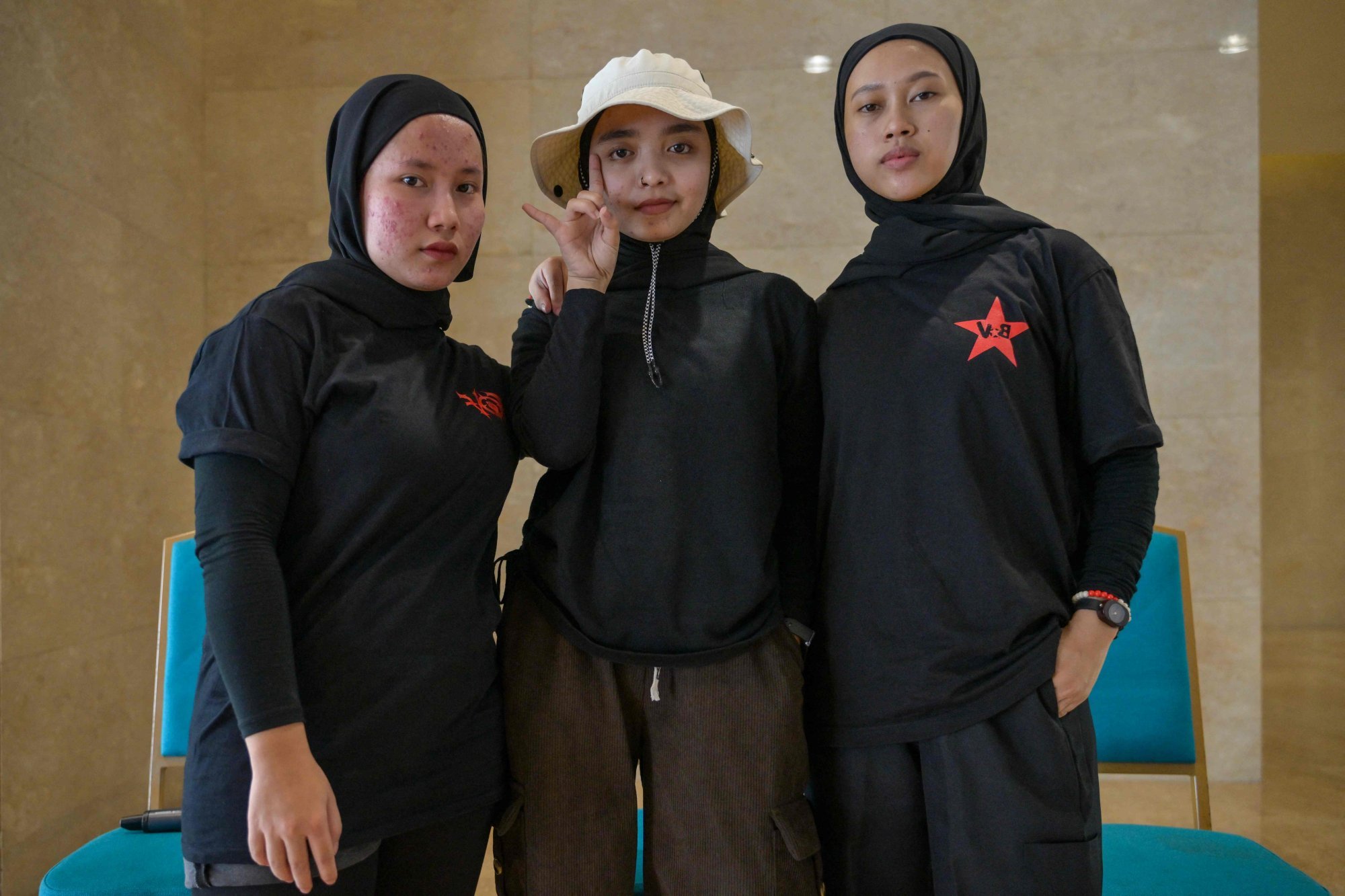
Fighting the critics
All three band members are practising Muslims and make it a point to pray together before they go on stage.
Some of their detractors have used their religion to attack them, calling their music “haram” or forbidden by Islam. The band hits back at such attacks by questioning why Indonesian male musicians do not face the same criticisms. “Why only the women?” they ask.
“At the start, we definitely received a lot of hate and attacks, both online and offline. People would even come to our shows to criticise us,” Marsya said. “Online, we used to get comments from people saying they were going to buy our albums just to burn them all.”
She recounted an experience where a stranger threw a rock at her while she was heading to band practice in Garut, a stark reminder of the physical danger they potentially face for pursuing their passion.
One of their biggest hit songs, God Allow Me (Please) to Play Music, is a direct response to the criticism and attacks they have faced.
“Why today, many people wear religion to kill the music?” ask the lyrics. “I’m not the corruptor. I’m not the enemy. I just wanna sing a song to show my soul.”
“We were so tired of having to respond to the haters and the threats every day,” Marsya said. “So we decided to make a song about it. That way, anyone who has a problem with us can just listen to our response in our song.”
The band is also keen to use their music to help shatter the image of Indonesia as an ultraconservative Islamic nation, a misconception that they say is held by many in the West.
“Sometimes they will compare it to a place like Afghanistan,” Marsya said. “But Indonesia is not like that. As women, we are still able to play music … there might be some people who disagree with what we do as young female musicians, but we can still go on stage and keep doing this.”
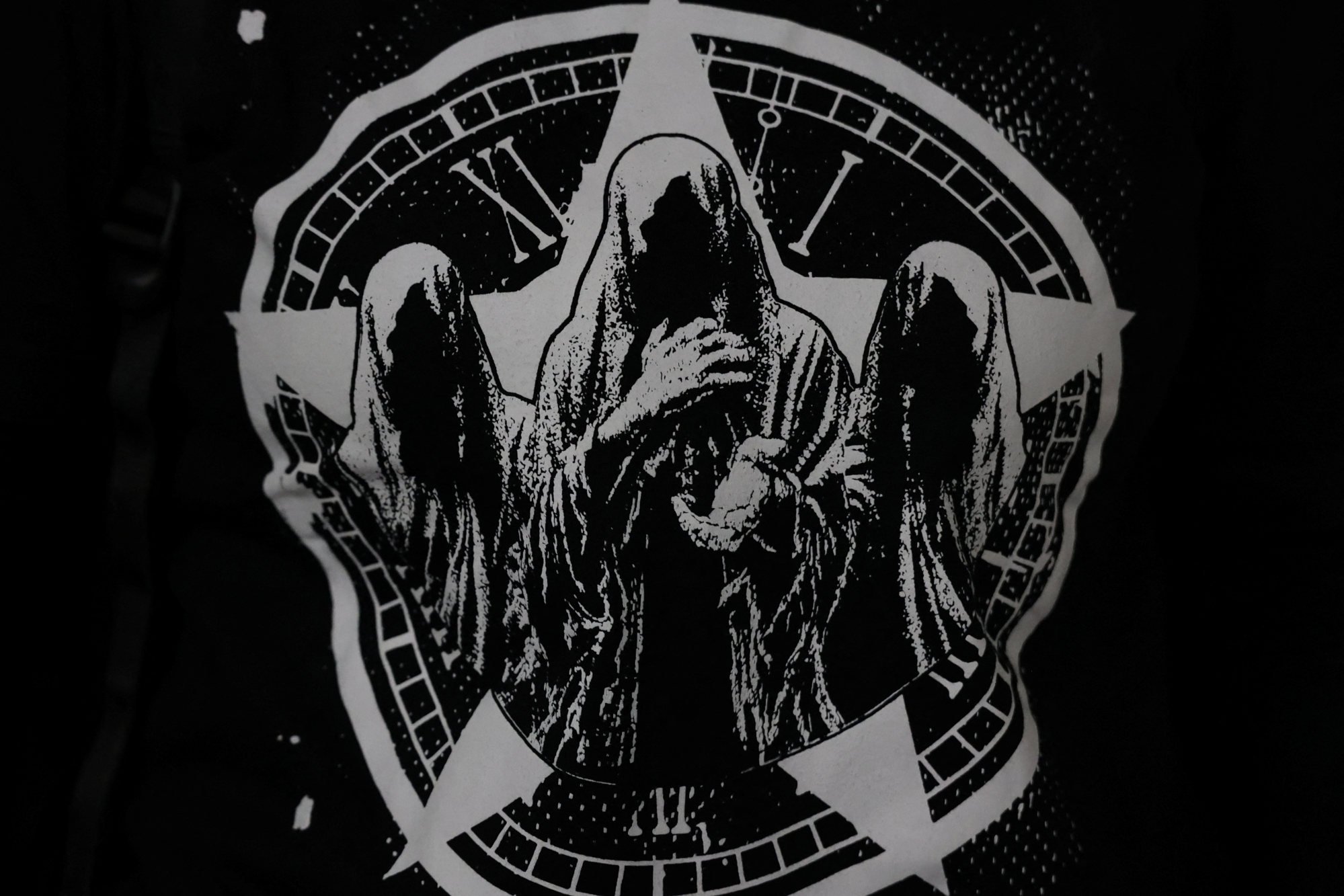
Looking ahead
The band has played festivals and toured cities across the United States, Europe and Asia. But they describe landing the gig at Glastonbury as a truly “surreal moment” in their career.
“Glastonbury was massive news for us. We still feel very surprised, nervous and excited,” Marsya told This Week in Asia days before their performance.
“It’s a big pressure when we’re told we’re representing Indonesia on this stage, so sometimes that is hard to think about … but we feel proud to do that.”
The Glastonbury appearance has stirred up the band’s Indonesian fans, including Surabaya resident Eko Dharmawan, who said it was surreal to see them perform at such a “huge festival”.
Eko, 27, became a fan of the band after watching a video of them covering a System of the Down song a few years ago.
“I think they are so creative and unique … I hope they become even more popular around the world,” he said.
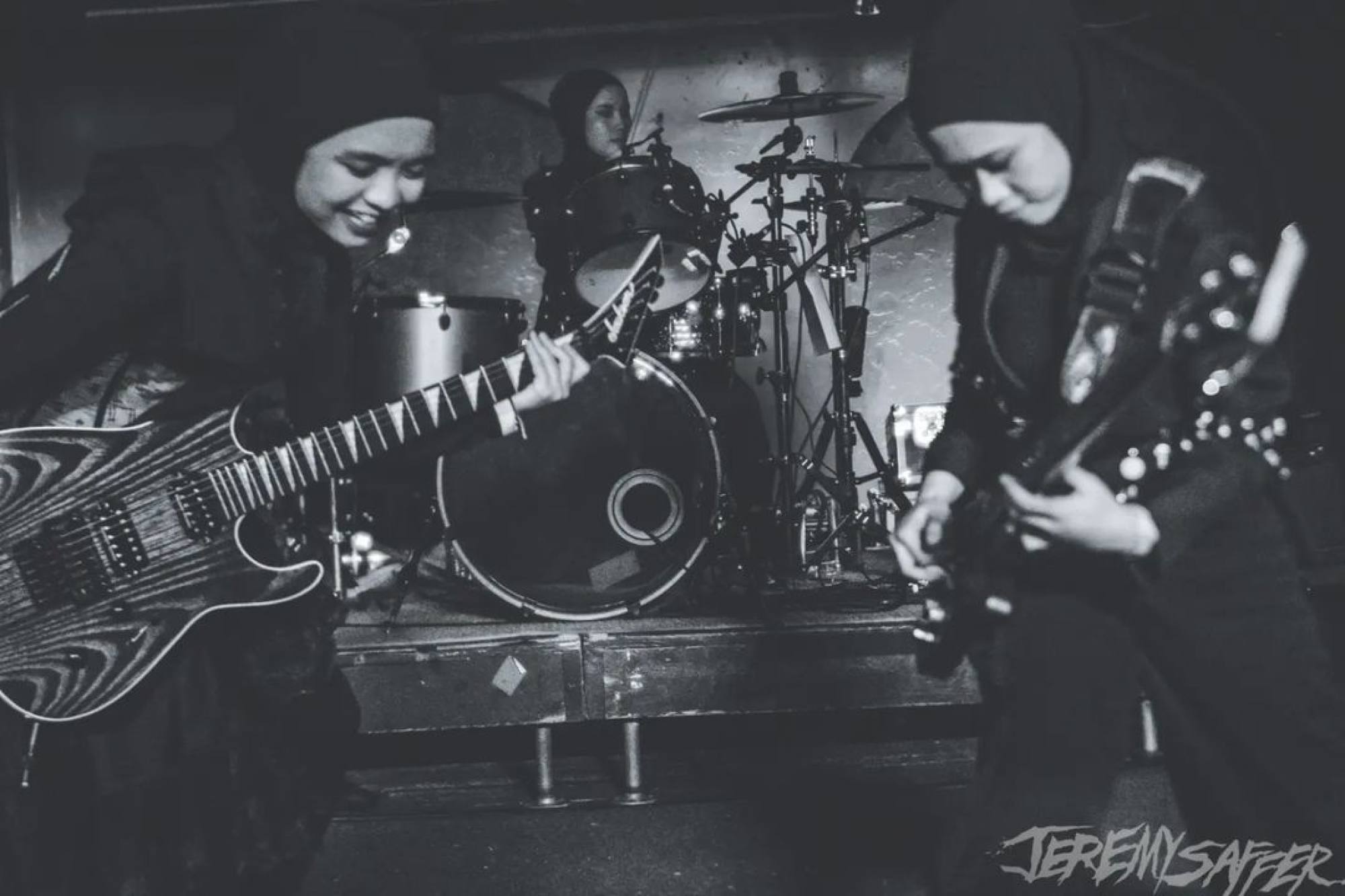
As Voice of Baceprot gains fame and acceptance globally, the band members say they have big plans for the future. Widi says she would love for them to have their own studio in Garut so they could record their original music closer to home. They recently left their record label to go independent, after realising that being part of a label was putting too many constraints on their public image.
They have already played at local festivals in Jakarta, Bandung and Yogyakarta, but say they hope to tour more cities across Indonesia. Siti says they are also looking forward to more gigs around the world, and recording more albums.
The group put out their first full-length record, “Retas”, in 2023, to “show the world that we are more than just a cover band”, said Marsya, adding that their original music gave them a chance to discuss issues they cared about, including women’s rights and environmental protection.
“Music is a bridge that we can use to connect with people from different backgrounds and different ages,” she said. “We hope we can keep doing that.”
Additional reporting by Agence France-Presse

